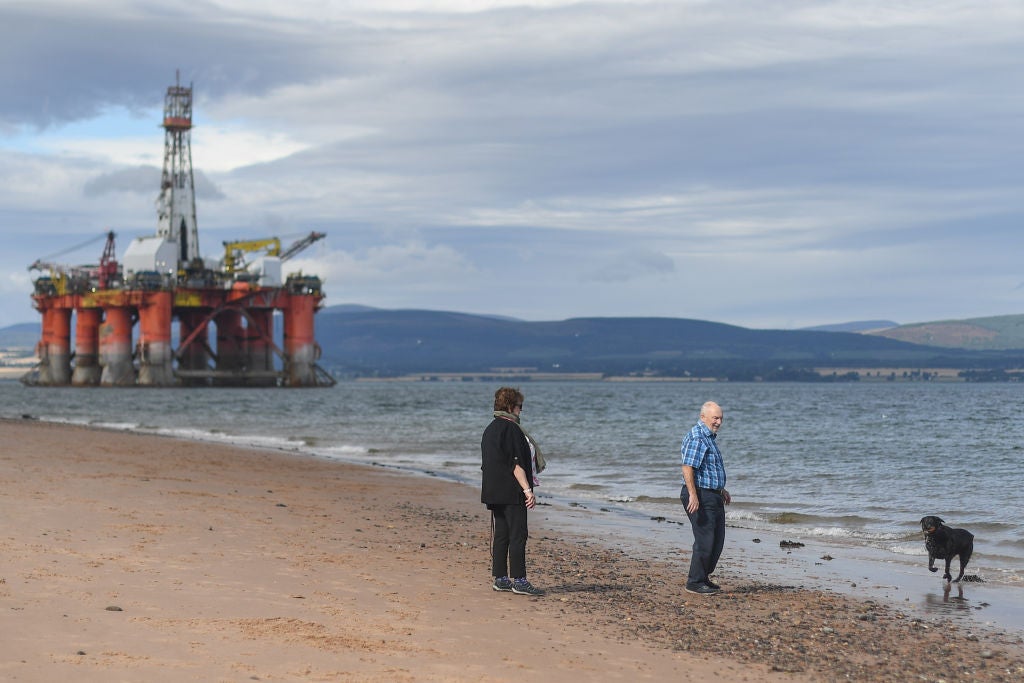
Once again, North Sea oil and gas finds itself in the crosshairs of UK political discourse, with former Conservative Energy Minister Chris Skidmore resigning as an MP on Saturday due to a UK Government bill to allow new North Sea oil and gas licences to be issued, despite the risks they pose to the UK’s climate strategy.
Skidmore’s resignation came in advance of Monday’s parliamentary vote on a bill that guarantees annual North Sea oil and gas licensing rounds. The bill is predominantly a political move, said Jess Rawlston, head of energy at the non-profit Energy and Climate Intelligence Unit, on X; the UK’s oil and gas regulator has said the legislation is not necessary to boost production.
Despite the UK recently committing to a transition away from fossil fuels – along with 197 other parties at COP28 – Prime Minister Rishi Sunak has been pushing for hundreds more licences to drill for oil and gas, claiming it will protect jobs and make Britain more energy independent.
Now, new data from the Common Wealth think tank underscores a fundamental flaw in Sunak’s logic: despite claiming North Sea oil and gas will bring the UK energy independence, at least 40% of North Sea oil and gas licenses are owned by foreign investors. Moreover, for the purposes of its analysis, Common Wealth excludes from this figure companies that have registered parent headquarters in UK tax havens such as the Bahamas, Jersey and the Isle of Man, so the actual proportion of foreign ownership could be even higher.
Common Wealth found that just 61 companies own North Sea oil and gas licences; most of them are publicly listed, while one-third are privately-owned and therefore less transparent. A handful of owners are state-owned enterprises from China, Russia, Norway, Korea and the United Arab Emirates.
The research also shows that 29.7% of North Sea equity licences are held by private equity-backed ventures or former private equity backed companies that entered the North Sea market following the crash in oil prices in 2014. Common Wealth argues that private equity ownership is less likely to be aligned with the UK’s state-backed net-zero goals.

US Tariffs are shifting - will you react or anticipate?
Don’t let policy changes catch you off guard. Stay proactive with real-time data and expert analysis.
By GlobalDataMathew Lawrence, Common Wealth's founder and director, says: “[The] future of the North Sea is pivotal to our energy security [and] key to that is who owns and profits from oil and gas licences today.
“Our analysis shows three sets of companies dominate: the multinational fossil fuel giants; overseas companies, many of which are state-owned entities; and private equity-backed firms,” he told Energy Monitor. Not only does this mean that profits are directed away from the British public, it also means that owners are not incentivised to align with the UK’s net-zero strategy.
Other research also questions the value of North Sea oil and gas production for UK energy security. Campaign group Uplift notes that the UK exports 80% of its reserves. In addition, citing research from the UK Climate Change Committee, Uplift argues that even if all proven UK reserves and resources from new fields were extracted, it would only add up to around 1% of European gas demand each year until 2050.
Given that it takes around 28 years from discovery to extraction, it would also likely be at least 2050 – the year the UK has pledged to be net zero – before consumers would benefit, Uplift argues.
Over the weekend, UK Chancellor Jeremy Hunt told the BBC that UK plans for oil and gas licensing are compatible with the country’s net-zero strategy.
However, were the UK to exploit all remaining reserves in undiscovered and undeveloped fields, in addition to active and planned fields, the expected 7.6 billion tonnes of CO2 equivalent (btCO2e) in emissions would be more than twice the UK’s share of 3.33btCO2e of the remaining global carbon budget for 1.5°C, according to research from US-based non-profit Global Energy Monitor.
“It is not just about who controls – and is responsible for securely and fairly winding down – oil and gas production in the North Sea," Lawrence says. "Energy security is about scaling a clean energy future [and] ensuring we reap the benefits of our renewable riches.
“A different vision of ownership is needed to achieve this. We need to ensure the public holds on to ownership of our shared natural wealth," he adds.



